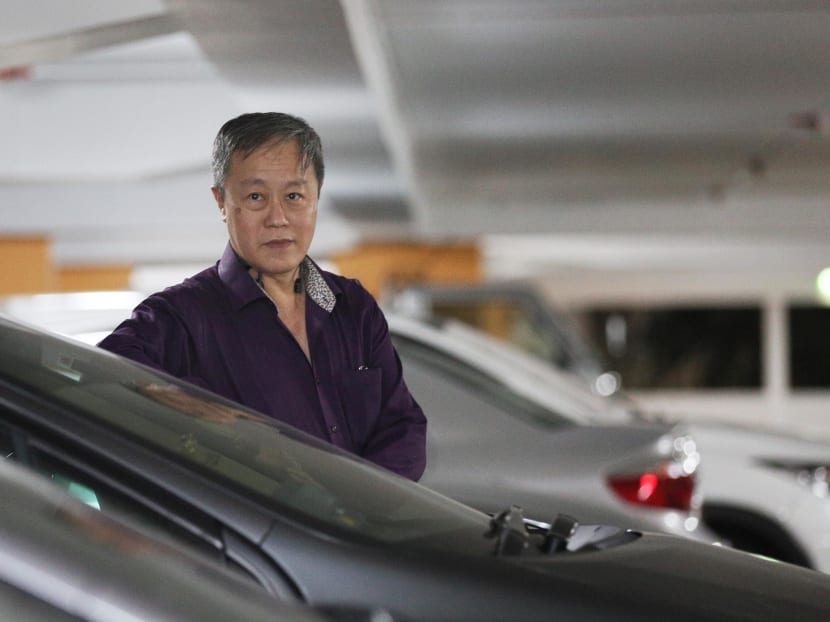More taxi drivers to be trained in life-saving skills
SINGAPORE — In the 10 months since he volunteered to be part of a programme to train taxi drivers in basic life-saving skills and equip their vehicles with automated external defibrillators (AED), Mr Yap Keng Ho has responded 20 times to cardiac arrest cases within his vicinity.

Taxi driver Yap Keng Ho, 55, volunteered to be part of a programme to train taxi drivers in basic life saving skills. His taxi is equipped with an automated external defibrillator(AED) and he has responded 20 times to cardiac arrest cases within his vicinity. TODAY Photo: Raj Nadarajan
SINGAPORE — In the 10 months since he volunteered to be part of a programme to train taxi drivers in basic life-saving skills and equip their vehicles with automated external defibrillators (AED), Mr Yap Keng Ho has responded 20 times to cardiac arrest cases within his vicinity.
In one case at an Orange Valley nursing home, Mr Yap, who was the first to reach the scene, used the electronic device to revive an old lady suffering from pneumonia before the ambulance arrived.
The 55-year-old is among the 100 SMRT cabbies involved in a three-year pilot programme launched last November by SMRT and Temasek Cares, the philanthropic arm of Temasek Holdings.
These drivers receive alerts via the Singapore Civil Defence Force’s (SCDF) MyResponder app if they are within a 1.5-kilometre radius of a cardiac arrest case.
To beef up community response to terrorism in conjunction with the SGSecure national movement launched on Saturday (Sept 24), the Ministry of Home Affairs (MHA) is working with the National Taxi Association (NTA) to train more cabbies and union leaders in life-saving skills, such as basic first aid, the use of AEDs for cardiopulmonary resuscitation and fire safety.
Thirty-five participants have been scheduled for the first training session in November, where they will also be trained to look out for suspicious characters and objects.
These include unusual items left behind in their vehicles, such as packages with excessive adhesive material, oil stains, or items exuding odour.
Cabbies should also be on alert when they come across vehicles that appear overly laden, such as with heavily sunken tires and suspensions, or have suspicious items within.
The SGSecure movement will also advise taxi drivers on the importance of building cohesion and what they can do in the aftermath of an attack, such as advising passengers to check official sources for information (such as the police website or Facebook) and not to spread rumours, said the MHA.
NTA executive adviser Ang Hin Kee said the upcoming training sessions will enhance ongoing efforts to equip cabbies as “first responders” during emergencies.
Currently, taxi drivers are trained to alert the police when they come across suspicious passengers, such as those who request to travel to key leaders’ residences, or visit multiple embassies.
“The SGSecure workshop will give (the cabbies) more updated information, such as the Run-Hide-Tell protocol and first aid, so they can render assistance more readily in the event of an attack, and do more than just inform the police,” Mr Ang said.
The “Run, Hide, Tell” protocol aims to teach residents how to evacuate a location under attack by the safest route or find cover, and inform the police about the attack when they are safe.
The SGSecure movement has also moved into neighbourhoods, workplaces and schools to enhance the Republic’s collective fight against terrorism.
The revamped Emergency Preparedness Day — which aims to equip residents with information and skills to respond during a terrorist attack — has been rolled out in three pilot constituencies, and will be extended to all neighbourhoods by March 2019.
Community and grassroot leaders have also been trained on how to deal with the community in the aftermath of a crisis, such as managing potential communal tensions.
Industry-specific seminars and exercises will also be held in coming months to validate emergency protocols at workplaces.
Mr Teo Siong Seng, chairman of the Singapore Business Federation, noted that for businesses, noted that one fundamental aspect of SGSecure is to encourage businesses to incorporate resilience into their organisations.
As the global terrorism threat enters a different phase -- with attacks targeted at areas with a high population density and “soft targets” such as shopping malls -- Mr Teo said Singapore must not take the peace and harmony that it has enjoyed for granted.
“Businesses should be committed to being crisis-prepared to minimise disruption and safeguard their assets in the event of a crisis. Also, employees that are adequately prepared will be calmer and mentally equipped to deal with the situation in the event of an emergency,” he added.






